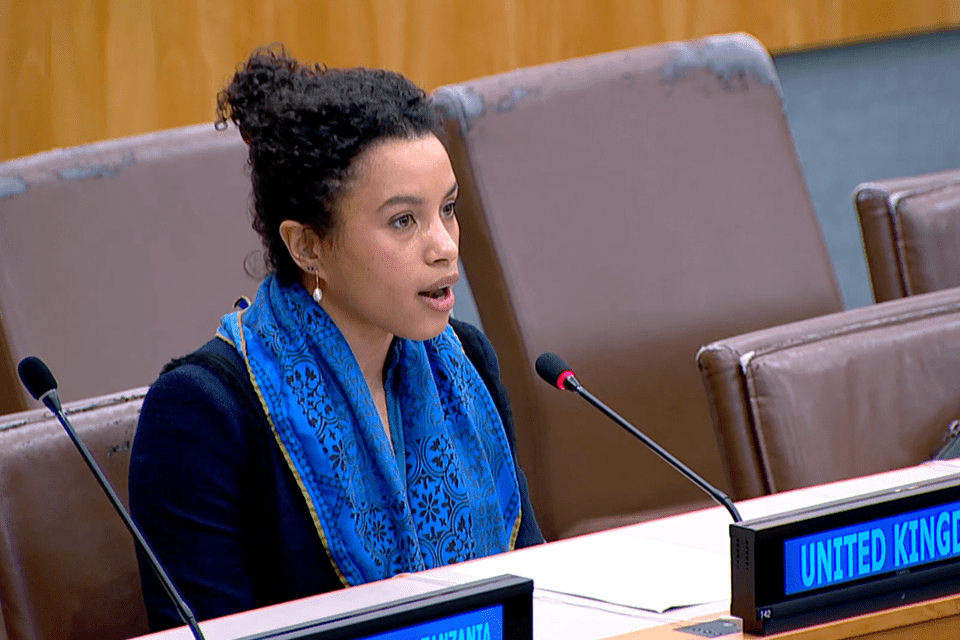
UK Vows to Protect Info Integrity With Rights-Based Approach
Statement by UK Spokesperson to the UN Letisha Lunin at the UN Committee on Information General Debate.
Thank you Chair, let me begin by congratulating you and the members of the Bureau on your election.
I would also like to thank the Secretariat and Under-Secretary-General Fleming and the Department of Global Communications for its work, including on the UN’s Global Principles for Information Integrity, which we are proud to support.
The UN’s footage and testimony from war zones shines a light on humanitarian crises. Its news and campaign services raise awareness of the Sustainable Development Goals, and equip us with accurate information on the climate and nature crisis.
As we mark the UN’s 80th anniversary, the Department’s work has never been more important.
It is vital audiences understand the nature and magnitude of the current global challenges we face, and how the UN has made a difference, maintaining international peace and security, in accordance with the UN charter.
Chair, I will make three points:
First, the UK is extremely concerned at the rapidly growing threats to information integrity, fueled by artificial intelligence.
Mis and disinformation operations are being used to exacerbate tensions and conflicts, and compromise the integrity of elections, undermining trust in democratic institutions.
The recent World Economic Forum Global Risks Report for 2025 lists mis and disinformation as the most severe global risks over the next two years.
Mis and disinformation is being weaponised by state and non-state actors to deceive populations at scale.
Since Russia’s illegal invasion of Ukraine, Russia has been using disinformation to undermine global support for Ukraine. The UK has been proactive in identifying and acting against these malign information operations. This includes exposing and sanctioning the Russian state-funded Social Design Agency, whose sole purpose is to weaken international support for Ukraine by spreading false social media content.
Recently, the UK shared information that Proxies, directed by the Russian state, have plans to interfere with elections in the Central African Republic, including through suppressing political voices and conducting disinformation campaigns to interfere in political debate.
Russia has also been exploiting the Security Council as a platform for disinformation. Russia has invited dozens of individuals as briefers to spread conspiracy theories about what has happened in Ukraine.
Member States all have a responsibility to protect the integrity of the UN as a trusted source of information.
The UK condemns disinformation about UN Peacekeeping operations. The spread of false allegations not only erodes trust between the Blue Helmets and the communities they serve, it is also damaging their ability to implement their mandate, and it is putting peacekeepers’ lives at risk.
We are proud to support the UN’s Mis and Disinformation in Peacekeeping Settings Project.
Second, independent journalism reported freely, without fear, is essential in a democratic society.
But in many parts of the world, the freedom of the media is under threat.
The Committee to Protect Journalists (CPJ) reports that more journalists were killed in 2024 than in any other year since it began collecting data over three decades ago.
The conflict in Gaza has become the deadliest ever recorded
https://www.gov.uk/government/speeches/the-uk-is-committed-to-doing-all-we-can-to-protect-information-integrity-with-a-human-rights-based-approach-uk-statement-at-the-un


